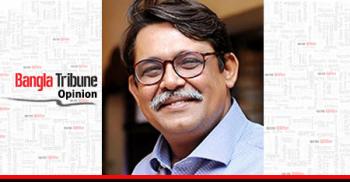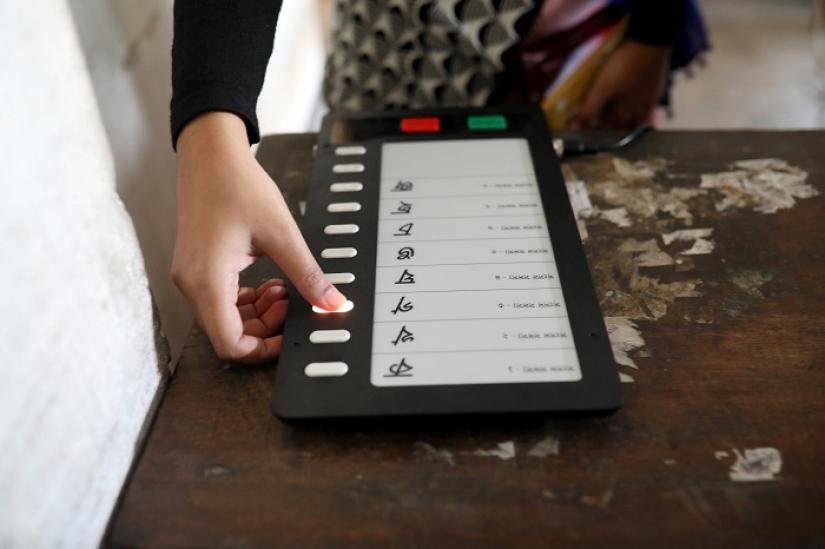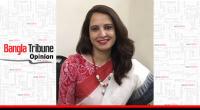 At a time when Bangladesh is fast introducing large scale digitalisation, doubts about Electronic Voting Machines (EVM) not being secure and could be trampled, have been rubbished by experts in the field.
At a time when Bangladesh is fast introducing large scale digitalisation, doubts about Electronic Voting Machines (EVM) not being secure and could be trampled, have been rubbished by experts in the field.
Elections in many countries of the world, including the United States, have not been beyond doubt once the results are out for one or other reasons, but trying to stick to manual voting is a laugh. Politicians and the social media have been held responsible for circulating baseless claims about EVMs.
With the modernisation of the voting process came the EVM to stop vote tampering as seen before.
Information Minister Hasan Mahmud was right in saying recently that EVM proved its worth in ensuring a fair election in the Bogura by-election.
“Elections were held in a fair and neutral manner under the incumbent government. And EVMs were used in this polls,” he said
Former Election Commission Secretary Helal Uddin Ahmed has said the Commission has plans to start using EVMs in at least 150 constituencies out of the total 300 in the next 12th national elections.
He, however, said that there are some barriers in using use EVMs in all upazila parishad and union parishad elections for want of adequate supply of electricity and good communication system.
Bangladesh has experimented and has started to use it in phases, while during voting on India’s 23 May (final day of the Lok Sabha polls), allegations of vote tampering were all targeted at the EVMs although a new gadget called Voter Verifiable Paper Audit Trail (VVPAT) was also used to match voting and what WAS recorded in these machines.” Election official Chawla supervised the “crucial 2009” elections winning national and international acclaim.
Election official Chawla supervised the “crucial 2009” elections winning national and international acclaim.
In Bangladesh and in India similar allegations have been made by the losers as a “state-sponsored hacking” whenever EVMs were used, but Chawla stated that it was proved beyond doubt that these machines with a chip, which were introduced in 1982, were totally safe and could not be tampered with.
But one complainant in an Indian court case proposed that a “verifiable paper trail” could be made and that would end all controversies about the EVMs. However, the cost of VVPAT was much more than EVMs.
In the recent polls in India, both EVM and VVPATs were used and thus allegations of vote tampering faded away. What remained was the possible violation of rules in storing the machines with televisions showing footages of uncared or unguarded EVMs/VVPATS lying around.
Chawla concluded that the “Commission satisfied itself that there could not have been a single credible case in the whole country where a result had been influenced because of tampering in the manner that had been alleged as either possible or probable.”
There were also attacks on the Chief Election Commissioner, but the commission rejected all such allegations as “baseless and frivolous.”
The other factor, Chawla pointed out was the use of social media during the period when campaign was banned. It had the power to confuse voter judgement. In both countries campaigning was done digitally with the use of WhatsApp and other media like the Facebook through which misinformation could be spread and generate discords, Chawla said in his book.
The Election Commission said the machines would continue to be used as it proved its accuracy and saved both the time and hassle of human counting.
Nadeem Qadir is the Consulting Editor, Daily Sun and a UN Dag Hammarskjöld fellow.
 Opinion
Opinion
41133 hour(s) 18 minute(s) ago ;
Afternoon 04:12 ; Thursday ; Jun 26, 2025
Flawless EVMs made controversial by politicians, social media
Send
Nadeem Qadir
Published : 00:11, Jul 13, 2019 | Updated : 00:18, Jul 13, 2019
Published : 00:11, Jul 13, 2019 | Updated : 00:18, Jul 13, 2019
0 ...0 ...
/aib/hb/
Topics: Top Stories
***The opinions, beliefs and viewpoints expressed in this article are those of the author and do not reflect the opinions and views of Bangla Tribune.
- KOICA donates medical supplies to BSMMU
- 5 more flights to take back British nationals to London
- Covid19: Rajarbagh, Mohammadpur worst affected
- Momen joins UN solidarity song over COVID-19 combat
- Covid-19: OIC to hold special meeting
- WFP begins food distribution in Cox’s Bazar
- WFP begins food distribution in Cox’s Bazar
- 290 return home to Australia
- Third charter flight for US citizens to return home
- Dhaka proposes to postpone D8 Summit
Unauthorized use of news, image, information, etc published by Bangla Tribune is punishable by copyright law. Appropriate legal steps will be taken by the management against any person or body that infringes those laws.
Bangla Tribune is one of the most revered online newspapers in Bangladesh, due to its reputation of neutral coverage and incisive analysis.
F R Tower, 8/C Panthapath, Shukrabad, Dhaka-1207 | Phone: 58151324; 58151326, Fax: 58151329 | Mob: 01730794527, 01730794528


